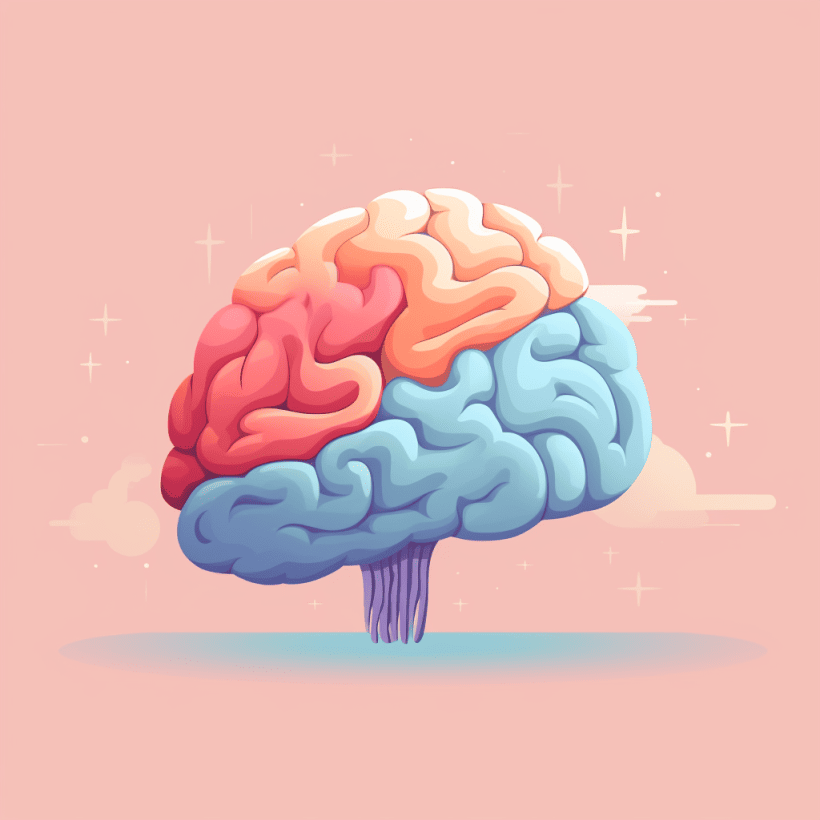Imagine standing at the crossroads of a life-changing decision, believing you're free to choose your path. Now, picture a world where every choice you've made was already set in stone from the beginning of time.
Hard Determinism is the belief that all events in the universe, including human actions, are determined by previously existing causes and natural laws.
It suggests that free will is an illusion because every action we take is predestined by an unbroken chain of prior causes and events. If you’ve ever felt that your choices might just be the end result of a cosmic domino effect, then you've brushed up against the essence of hard determinism.
The History of Determinism

The story of determinism begins in ancient times with philosophers like Heraclitus, who famously said, "You cannot step into the same river twice." He believed in a world governed by a rule of law—unchanging and relentless.
Around 384-322 BCE, Aristotle, the Greek philosopher, introduced the idea of causality. He proposed that every event in existence has a cause, suggesting a logical structure to the world around us.
Later, the stoics took this idea further, seeing the universe as a place where everything happens for a reason and that reason is part of a bigger plan that we cannot control.
Then, in the 17th century, Thomas Hobbes introduced a mechanical interpretation of determinism. He likened life to a complex machine—once set in motion, its future is predictable and fixed.
Fast forward to the Enlightenment era, and you'll meet philosophers like David Hume and Baron d'Holbach, who saw humans as part of nature, bound by its laws. They argued that just as the ocean's waves are dictated by the wind, our choices are influenced by forces both within and outside us.
d'Holbach was a champion of hard determinism, which he articulated forcefully in his work "System of Nature". He claimed that if we could know all the forces acting upon us, our future actions could be predicted with scientific accuracy.
His views represented a hardline stance that left little room for free conscious will, as he believed that even human thoughts were the result of material processes. It was a time when science began to hint at the underlying rules of the cosmos, rules that even our minds couldn't escape.
The 19th century saw a significant shift with the advent of Charles Darwin's evolutionary theory (1859). Suddenly, human behavior was seen in the light of natural selection and biological determinants, a perspective that greatly influenced the developing field of psychology.
Determinism gained a scientific foundation that suggested even the nuances of human behavior could, in principle, be traced back to causes like genetics and environment.
In the early 20th century, the rise of quantum mechanics introduced a new twist: the universe might not be as deterministic as previously thought.
Scientists like Werner Heisenberg (1901–1976) showed that at a subatomic level, things were unpredictable. This uncertainty principle brought a new dimension to the discussion of determinism, suggesting that not everything could be known or predicted.
Despite the quantum shake-up, determinism remains a key idea in many discussions about human behavior. Even today, it resonates through debates in neuroscience, psychology, and ethics, with modern thinkers like Sam Harris advocating for a version of hard determinism that considers recent findings in brain science.
Understanding Free Will
Free will is the idea that you can make choices that are truly your own, not decided by anything else, like a chess player freely moving the pieces on a board.
Yet, when hard determinism enters the conversation, it challenges this notion. It says that the chess game of life has moves that were decided long before you ever sat at the table.
The environment you grew up in, the genes you inherited, and even the neurons firing in your brain—these are the unseen hands guiding your every decision.
In the face of hard determinism, the concept of free will gets shaky. If every action is the result of something that came before it, is anything we do truly up to us? This question has puzzled students and scholars alike for centuries.
But here's an interesting point to consider: while hard determinism suggests that free will doesn't exist, it doesn't deny that we feel like it does. We plan, deliberate, and weigh our options as if we're in control, even if determinism suggests it’s all just an intricate dance of cause and effect.
To understand free will is to look at your choices and ask, "Could I have done otherwise?" Hard determinism would say no—what you did was the only thing you could have done, given the circumstances.
Yet, the feeling of making a choice feels so real, so personal, that the debate continues, with free will being the voice that whispers, "Maybe there's more to the story."
29 Examples of Hard Determinism
1) Morning Alarm

Your alarm buzzes at 6 AM. You think you're choosing to wake up and start your day. Under hard determinism, that choice is an illusion. Your wake-up time was set by your job's start time, which was determined by the company's hours, which in turn are dictated by market demands and societal norms.
2) Breakfast Choices
You open the fridge and decide to eat eggs over cereal. But was it a choice? Hard determinism would argue that your preference is based on prior experiences, nutritional habits instilled by your parents, and perhaps even a biological predisposition toward protein, all set in motion long before you felt "hungry."
3) Daily Commute
You take the same route to work every day, believing it's a conscious decision. Hard determinism, however, says this pattern is the result of previous conditioning, traffic patterns, and the structured layout of your city, which influences your so-called choice.
4) Falling in Love
When you fall for someone, it feels like fate. But a hard determinist would point to a complex web of social interactions, cultural norms, biological attractions, and past relationships that inexorably led you to these feelings.
5) Career Path
Choosing a profession feels like a major personal decision. However, hard determinism would assert that this choice has been shaped by economic factors, educational background, family influences, and societal expectations, limiting the scope of true "choice."
6) Political Views
Your political stance might seem like a rational choice. Yet, determinists would argue it's heavily influenced by your upbringing, the community you live in, and the information you've been exposed to throughout your life.
7) Enjoying Music

Your taste in music? A determinist would say it’s less about choice and more about exposure. The music you heard growing up, the first concert you attended, and even the music your friends enjoy could all determine your playlist.
8) Exercise Habits
Whether you hit the gym or not might not be up to you, but rather the result of your genetic predisposition, the value your social circle places on fitness, and even the availability of recreational spaces in your community.
9) Shopping Preferences
Why you prefer one brand over another might be influenced by marketing that’s targeted to your demographic, shaped by your socio-economic status and prior experiences with the brand, rather than a free-willed decision.
10) Eating Out
Deciding where to eat out might be less choice and more result of habit, dietary restrictions, and even the influence of food trends within your social network.
11) Fear of Spiders
Is your arachnophobia a choice? Hard determinism suggests it's a learned response, possibly stemming from an evolutionary survival mechanism or a scary encounter in early childhood.
12) Trusting Someone
Determinists argue that your tendency to trust is not a choice but the result of past interactions, societal norms, and possibly even genetic factors that influence social behavior.
13) Choosing a College
Your selection of a university may feel like a milestone decision, but it could actually be the result of academic pressures, familial expectations, and financial considerations laid out before you even filled out an application.
14) Saving Money
The decision to save or spend could be a predetermined outcome based on economic upbringing and the financial habits modeled by your parents.
15) Making Friends
Your circle of friends might not be a choice but a byproduct of your environment, shared experiences, and socio-cultural factors that drew you to certain people.
16) Reading a Book

Picking up a book to read may hinge on past teachers' influences, the availability of books in your upbringing, and even your brain's neurological wiring for language processing.
17) Learning a Language
The languages you speak are often determined by your geographic location, the language spoken at home, and the education system you were part of, rather than an active choice.
18) Artistic Appreciation
Your preference for certain art styles is likely influenced by exposure, cultural background, and perhaps even the neurological wiring of your visual system.
19) Handling Stress
Your coping mechanisms for stress might be seen as a personal choice, but determinists would say they're the result of learned behaviors and biological responses ingrained over time.
20) Laughter
What makes you laugh isn't a choice but a reaction influenced by social cues, cultural context, and even the laughter of those around you.
21) Spiritual Beliefs
Your faith or lack thereof can seem deeply personal, but it might be determined by the family and society you were born into, along with their collective beliefs and practices.
22) Sleep Patterns
Whether you're an early bird or a night owl might not be a choice but a consequence of genetic predispositions and the demands of your lifestyle and responsibilities.
23) Gift Giving
Choosing gifts comes from social expectations, previous gift-giving experiences, and the cultural significance of generosity, rather than an independent decision.
24) Creative Writing
Your writing style could be the culmination of all the literature you've consumed, educational influences, and even the type of feedback you've received in the past.
25) Punctuality
Being on time might be less about choice and more about the value your culture places on time, the consequences of lateness you've experienced, and your personal time management skills, which are influenced by a variety of factors.
26) Seeking Adventure
Your thirst for adventure may not be a choice but a mix of genetic makeup, the influence of peer groups, and exposure to different activities during your formative years.
27) Parenting Style
The way you parent reflects the parenting you received, the norms of your culture, and the information you've been exposed to about child-rearing.
28) Financial Investments
Your approach to investing may be the result of your risk tolerance, which is influenced by your financial background and possibly even a genetic predisposition toward certain behaviors.
29) Voting
Finally, the act of voting may seem like a civic choice, but it's one that's heavily influenced by your community, historical trends, economic status, and political information you've been exposed to throughout your life.
Moral Responsibility and Hard Determinism

Moral responsibility is a heavy term. It's about whether you can be praised or blamed for what you do. When you think about hard determinism, things get tricky. If every action is already decided by past events and natural laws, can we really hold people responsible for their actions?
Think about it like a row of dominoes. If you push the first one, the rest will fall. It's predictable, and you can't blame the last domino for falling; it was set in motion by the first push. Hard determinism suggests our choices are like those dominoes, set up by the events that came before.
But wait, you might think, doesn't that make the whole idea of right and wrong, rewards and punishments, kind of pointless? Not necessarily.
Some argue that we still need to hold people accountable to maintain order and encourage good behavior. It's like telling a story where the characters must learn lessons, even if the plot is already written.
If hard determinists are right, then the criminal justice system definitely needs some adjustments.
And yet, this view shakes up our legal systems and our everyday judgments of each other. If a person's choices are not really choices, the argument for punishment or reward changes. It becomes more about what will fix the problem or prevent future ones, not about giving someone what they "deserve."
Hard determinism forces us to look at human beings and at morality in a new light. It's not about pointing fingers; it's about understanding the complex web that leads to a person's actions. This perspective doesn't erase the difference between good and bad but it does suggest that understanding and compassion might be more appropriate than blame.
Criticisms and Counterarguments
Criticisms and counterarguments give spice to any theory, and hard determinism has its fair share.
One major criticism is about free will. Many people can't shake the feeling that they make real choices. They say, "When I chose chocolate over vanilla, it felt real!" Critics argue that this feeling of choice is a basic part of being human. It's like being the author of your own story, not just a character following a script.
Another argument comes from quantum mechanics, where things at the tiny level seem a bit random. If an atom can be unpredictable, maybe we can be too. It suggests a crack in the hard shell of determinism, a chance for free will to sneak in. Chaos theory has a lot to say about that.
Then there's morality. If we're not free to choose, how can we blame someone for doing wrong? Critics say that without free will, the whole idea of moral responsibility goes out the window. It's like telling someone they did a good job for not flying; they never could fly in the first place, so praising or blaming doesn't make sense.
There's also a practical side to the criticism. If we all believed in hard determinism, would anyone try to change for the better? It might make people feel hopeless, like nothing they do matters. It's the danger of a self-fulfilling prophecy: if you think you're not in control, you might stop trying to take control.
Lastly, there's the argument of unpredictability in human behavior. We're surprised by people all the time. If everything were determined, shouldn't we always know what others will do? This form of unpredictability hints that there's more to our actions than a simple chain of cause and effect.
These criticisms open the door to a middle ground, like soft determinism or compatibilism, where free will and determinism are friends, not enemies. It's a compromise that says, "Maybe our choices are influenced, but we can still be the boss of them in the end."
Comparison with Other Philosophical Theories
When you put hard determinism side by side with other philosophical theories, it's like comparing different types of engines – they all drive us forward, but in different ways.
Compatibilism is like a hybrid car. It blends free will and determinism, saying they can coexist. Compatibilists believe our actions are predetermined, but we're still free if we act according to our desires, even if those desires are part of the causal chain.
Next up, Libertarianism in philosophy (not to be confused with the political stance) is like a pedal bike. It insists that free will is totally in our control, like pedaling wherever you want. Libertarians reject determinism and argue that we make free choices, independent of past events.
Then there's Existentialism, which is like a custom-built vehicle. It stresses individual freedom and choice. Existentialists argue that we create our essence through these choices, defining ourselves as we go along.
Nihilism can be likened to a car that's out of gas. It suggests that life lacks inherent meaning, purpose, or value. From this viewpoint, whether our actions are determined or not doesn't really matter – there's no ultimate purpose to any of it.
Fatalism is like being on a train on fixed tracks. Fatalists believe that whatever is going to happen will happen, regardless of what we do. Unlike hard determinism, which looks at past causes, fatalism is all about the inevitable end points.
Hard Incompatibilism is a bit like having no vehicle at all. It agrees with hard determinism that free will doesn't exist, for example, but it also throws out the idea that everything is causally determined, leaving us in a sort of philosophical limbo.
Each of these theories gives you a different lens to view the world. Hard determinism says your path is set, but other theories give you the wheel, the pedals, or even the possibility of building the road as you travel.
As you live your life, you might find one theory more convincing than the others, or you might mix and match, creating your own understanding of free will and destiny. The journey of understanding these theories is as rich and varied as the theories themselves.
Hard Determinism and Psychology

When you step into the world of psychology, hard determinism starts to mingle with how we understand the mind and behavior.
Consider behaviorism, a school of thought in psychology. It's like hard determinism in that it sees your actions as responses to what's happened before.
If you've ever heard of Pavlov's dogs, which salivated when they heard a bell, you've met behaviorism. It says our behaviors are learned through conditioning — we're shaped by our environment and experiences.
Then, there's the idea of nature vs. nurture. Hard determinism nods to both. It agrees with nature, saying your genetics set the stage. But it also tips its hat to nurture, acknowledging that every person and your environment plays a part in the play that is your life.
Neuroscience adds another layer. It looks inside the brain and finds a web of neurons, each firing and forming a network that determines how you think and act. When you make a "choice," neuroscience can often point to a pattern in the brain that happened before you even knew what you were going to do.
But here's where it gets really interesting. Hard determinism and psychology both ask if you can change. If everything is determined, what's the point of therapy or trying to improve?
Well, some psychologists argue that learning about the forces that shape you is the first step in changing them. It's not that you can break free from determinism, but you can understand it and maybe steer it in a direction you prefer.
In your everyday life, this blend of psychology and hard determinism can help you understand why you act the way you do. It can lead to a bit of self-forgiveness and empathy for others. After all, we're all playing the cards we were dealt, but we're also learning how to play them a little better every day.
Hard determinism challenges us to look at human behavior through a deterministic lens, but it doesn't take away the power of understanding and working with the forces that drive us.
Frequently Asked Questions (FAQ)
1) What is hard determinism?
Hard determinism is the belief that all events, including moral choices, are completely determined by previously existing causes. It’s like a chain of events leading to one another where everything that happens is the only thing that could have happened.
2) Does hard determinism believe in fate?
Not exactly. Fate implies a predetermined outcome that's often associated with a mystical or higher power. Hard determinism is more about cause and effect and natural laws than a destined end.
3) Can we be held morally responsible if hard determinism is true?
This is a hot debate. If hard determinism is true, it challenges the concept of moral responsibility, since our actions are predetermined. Yet, many argue that social order and behavioral incentives still require a system of moral responsibility.
4) Does hard determinism negate the effort to change or improve oneself?
No, it doesn't. Understanding the deterministic forces in your life can be the first step toward making changes. It’s like being aware of the wind when you’re sailing; you can’t change the wind, but you can adjust your sails.
5) How does hard determinism differ from free will?
Free will is the idea that we can make choices that are not predetermined by past events or natural laws. Hard determinism states the opposite – that every event, including human cognition and action, is determined by an unbroken chain of prior occurrences.
6) What's the difference between hard determinism and soft determinism?
Soft determinism, or compatibilism, believes that free will and determinism are compatible. It says that our actions are determined, but we are still free if those actions are the result of our own desires and wishes.
7) Is there any scientific support for hard determinism?
Some interpretations of quantum physics suggest randomness at the subatomic level, which challenges hard determinism. However, behaviorism in psychology supports the deterministic view by showing how behavior can be predicted based on prior conditioning.
8) Do most philosophers support hard determinism?
Philosophy is diverse, and while some philosophers support hard determinism, many do not. There are numerous schools of thought on the matter of free will and determinism, and the debate is ongoing.
Conclusion
In wrapping up our journey through the intricate landscape of hard determinism, it’s clear that this philosophical theory isn't just about debating whether the future is set in stone; it's about understanding the deeper fabric of human existence and behavior.
Hard determinism pulls at the threads of our understanding of free will, morality, and personal responsibility. It challenges us to reconsider how we define ourselves and our actions in a world that might be more interconnected and prearranged than we ever imagined.
Yet, this doesn't diminish our desire to learn, grow, and strive for change. If anything, understanding the deterministic forces in our lives can empower us to navigate them with greater awareness and intention.
The implications of hard determinism stretch across ethics, law, psychology, and daily life. It pushes us to ask tough questions about how we hold ourselves and others accountable. It provokes a reassessment of our justice systems, our societal structures, and the way we treat each other.
Remember, the discussion around hard determinism isn't just academic; it's a conversation that can influence how we view the world and our place within it. Whether you align with the tenets of hard determinism or find yourself resistant to its claims, the value lies in the exploration — an exploration that can yield greater self-understanding, empathy for others, and insight into the human condition.
The debate is far from over, and as science progresses and society evolves, our interpretations and opinions may shift. For now, hard determinism serves as a potent reminder of the complex tapestry of causes and effects that weave the story of our universe, and our own individual lives, together.



